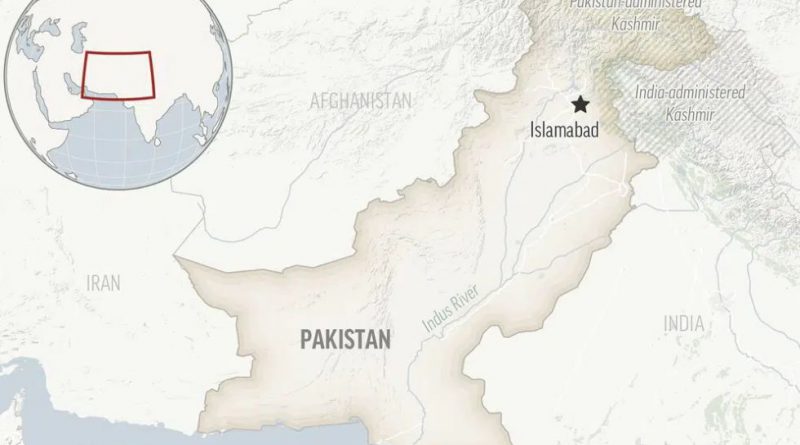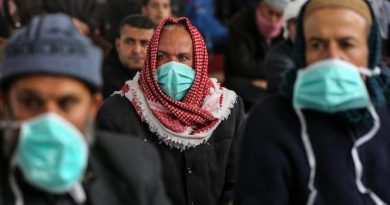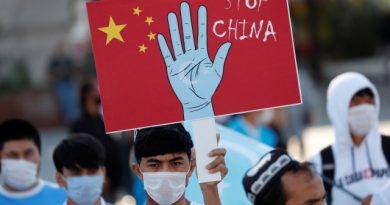Pakistan says it will skip US democracy summit amid turmoil
Islamabad (AP) — Pakistan announced Tuesday it will not participate in this week’s U.S.-led Summit for Democracy, a move seen in part as an effort by the impoverished Islamic nation to assuage longtime ally China, which was not invited.
The Biden administration has invited 120 global leaders to the summit being held in Washington on Wednesday and Thursday. It will be co-hosted by the governments of Costa Rica, the Netherlands, South Korea and Zambia.
Pakistan’s Foreign Ministry in a statement thanked the United States and its co-hosts for the invitation. Pakistan was also not part of the first and only other summit held in December 2021.
Pakistan is the fifth largest country in the world with a population of over 220 million. It has a functional democracy, although critics say Pakistan ranks among the worst democracies in the world.
“Pakistan would engage bilaterally with the United States and co-hosts of the Summit to promote and strengthen democratic principles and values and work towards advancing human rights and the fight against corruption,” the statement said.
Pakistan did not attend the 2021 summit amid growing tension between the government of then-Prime Minister Imran Khan and the U.S. administration of President Joe Biden. Relations between Washington and Khan were further strained when Khan visited Moscow in February 2022 during the Russian invasion of Ukraine.
Two months later Khan, who served as prime minister for over 3 1/2 years, was ousted in a no-confidence vote in Parliament by an alliance of major political parties.
Since then, Khan has alleged that the vote that removed him was a U.S.-organized plot, a charge that Washington and Khan’s successor Shahbaz Sharif have denied.
In Tuesday’s statement, the foreign ministry under Sharif said Pakistan values its friendship with the United States. “Under this Biden Administration, this relationship has widened and expanded substantially. We remain committed to further solidifying this relationship for peace, stability, and prosperity in the region,” it said.
The summit is taking place days after a leading international rights group in its annual report expressed concern over continued violations of human rights in Pakistan. These include enforced disappearances, curtailments on peaceful assembly, and tightening of controls on freedom of speech. Amnesty International said “blasphemy allegations continued to spark violence against both religious minorities and Muslims” in 2022.
Fawad Chaudhry, a senior leader from Khan’s Pakistan Tehreek-e-Insaf party, at a news conference in Islamabad released a report describing how the current government under Sharif is continuing a crackdown on Khan supporters that began with his ouster in April. He said hundreds of Khan supporters have been detained in recent weeks.
Pakistani analyst Imtiaz Gull, executive director at the Islamabad-based Center for Research and Security Studies, said there were multiple factors behind Pakistan’s decision to skip the summit. One of them is Pakistan’s desire to assuage concerns from China, which was not invited.
While relations between the U.S. and China have been strained, China has been helping Pakistan’s efforts to overcome its deepening economic crisis,
China has invested billions of dollars in Pakistan, much of it in the China-Pakistan Economic Corridor, which is a sprawling package that includes everything from road construction and power plants to agriculture. It has an estimated cost of up to $75 billion. The largest component of the CPEC project is a 3,200-kilometer (2,000-mile) road linking China to Pakistan’s deep-water port of Gwadar in the southwest. Pakistan hopes the project will bring prosperity to this South Asian nation.
China has also deposited much-needed millions into Pakistan’s central bank to boost its fast-declining foreign exchange reserves to save Pakistan from a default amid the country’s worst-ever economic crisis.
Talks with the International Monetary Fund for a bailout have been on hold since last year.
Gull also noted the growing instability in Pakistan amid a widening crackdown on Khan and his political party as a factor for Pakistan to bow out of the summit.
“It does not happen in democracies what is happening in Pakistan, where the country’s former premier Khan has been implicated in more than 127 cases, and hundreds of his party workers have been arrested on a range of charges, including terrorism,” he said.
“What would you present there if you go to participate in the summit about democracy and democratic values?” he said.



